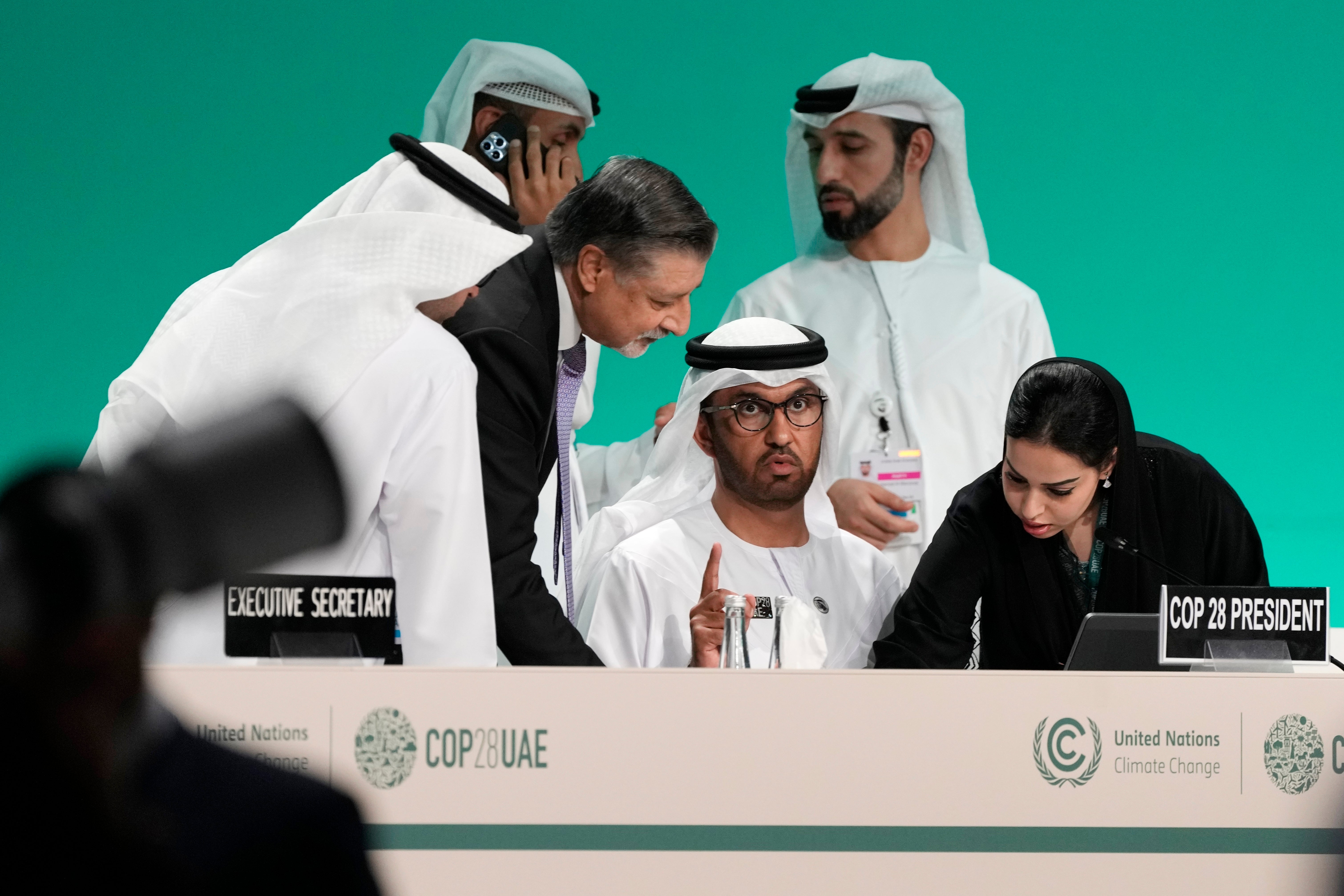The dirty secret behind Cop28’s upcoming fossil fuel negotiations
As the world finds itself running out of time to address climate change, oil interests have taken centre stage at the annual summit, writes David Callaway


One week into the United Nations Cop28 summit in Dubai, and the talks on a global “stocktake” for the world’s climate goals have already descended into a circus of competing oil and banking interests.
Now that world leaders such as King Charles III and US vice-president Kamala Harris have made their climate pleas and pledges and departed, negotiations in the coming week will focus on hammering out some sort of agreement on cutting fossil fuel emissions.
On the table is a smorgasbord of nothing burgers. A “phase-out” of oil? A “phase-down” of oil? A “rapid phase-out of unabated coal” production? Or, frankly, no deal at all. The pressure will be great, and the headlines tense. Given the history of these negotiations, talks will drag on past the 12 December deadline until delegates emerge with some vanilla compromise, probably around next Friday.
But the dirty secret of these talks is that oil interests, led by Cop28 president Sultan Al-Jaber, the head of the UAE’s largest oil company, have manipulated the negotiations to the point where whatever is decided won’t affect oil or gas production for years, if ever.
US president Joe Biden, for all his efforts on mitigating climate change with investments in renewable energy, is presiding over the biggest year in oil production in American history, with more than 13.2 million barrels a day pumped in September, according to the US Energy Information Administration. That’s even more than pre-Covid, says the government agency.
Two of the biggest deals this year on Wall Street were oil deals, including Exxon’s proposed $60bn (£48bn) purchase of Pioneer Natural Resources, the largest shale producer. A potential third deal in Australia, involving Woodside Energy and Santos, is in talks.
In the UK, prime minister Rishi Sunak has set plans to authorise 100 more North Sea oil licences in what he said a few months back would “max out” Britain’s oil and gas reserves.
In what will be the Earth’s hottest year in modern history, 2023, global oil production will reach record levels, while bureaucrats squabble over whether to “phase out” or “phase down” production by mid-century.
The farce in Dubai hit an almost comical note on Wednesday when it was reported that Russian president Vladimir Putin had flown to nearby Abu Dhabi in the UAE to raise Russia’s profile in the Middle East. Putin faces an arrest warrant in many parts of the world for his invasion of Ukraine, but is free to travel to the UAE and Saudi Arabia as they are on good terms with Russia.
The man behind Europe’s energy crisis of the past two years, which has led to a resurgence in oil interests worldwide, stayed just long enough to make his presence known to the climate summit some 45 minutes away in Dubai.
No doubt there are fierce diplomatic arguments ahead. Some countries in the Middle East are against any sort of phase-out or phase-down talk, such as Saudi Arabia. Others want more nuanced language. But a deal requires all 197 countries participating to agree, so the odds of the final wording being anything more than unenforceable are slim.
After more than a quarter century of negotiations, this will likely be the year the United Nations Conference of the Parties (Cop) process hits its low point, or perhaps even untimely demise. A generation of politicians has been outmanoeuvered by oil interests, to the point where Big Oil is now dictating the terms of the negotiations. If there weren’t some 80,000 witnesses in Dubai, you’d think it was some sort of desert mirage.
Join our commenting forum
Join thought-provoking conversations, follow other Independent readers and see their replies
Comments
Bookmark popover
Removed from bookmarks